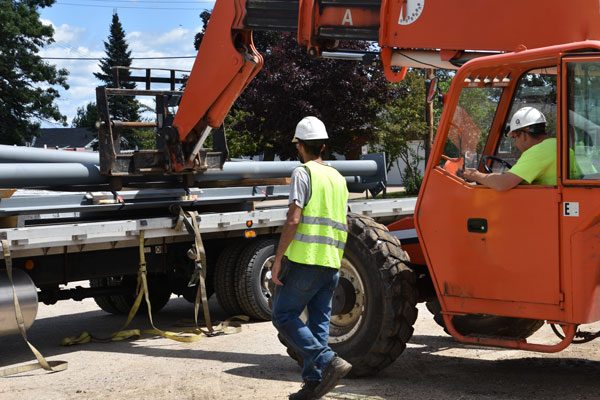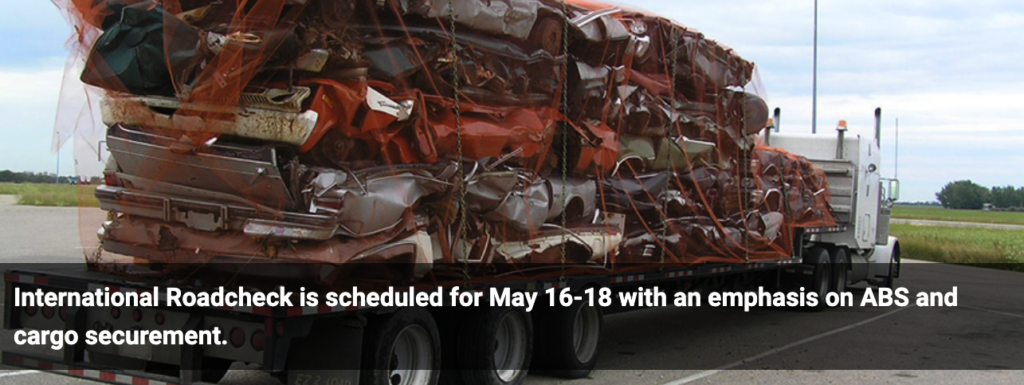Anti-Lock Braking System (ABS)
While ABS violations do not result in the vehicles being placed out of service, the goal of this year’s campaign is to put further emphasis on the importance of properly functioning ABS systems. When operating effectively, ABS systems greatly reduce the risk of collisions by preventing the wheels from locking up or skidding. This allows drivers to maintain control of their vehicles during hard-braking events. During the 2022 enforcement, brake systems (25.2%) and defective service brakes (12.7%) were two of the top three OOS violations. It is important to ensure that the ABS indicator lights do not remain on after the ignition is started in trucks and vehicles. Although this seems simple, this is the method of testing that will be performed during this year’s roadcheck. When the indicator light remains on, this means that the system is not functioning and will result in a warning. The warning must be signed and returned to WisDOT by the individual responsible for correcting the problem prior to the vehicle being re-dispatched.
Other Areas of Inspection
During the roadcheck, drivers and vehicles will be subjected to the routine North American Standard Level I Inspections. These exhaustive inspections focus on both driver and vehicle safety compliance. The Level I inspection is a 37-step procedure that involves the examination of the carrier’s and driver’s credentials, record of duty status, the mechanical condition of the vehicle and any hazardous materials/ dangerous goods that may be present.
Common items that can force a vehicle to be put out of service in addition to cargo securement and brake systems include:
• Coupling devices (hitches)
• Lighting systems (headlights, taillights, brake lights, marker lights, trailer lights)
• Tires (tread depth and pressure)
• Wipers (wiper motors, blades, and windshield wiper fluid)
The exhaustive 37-point inspection list, along with more information can be found on the CVSA website at cvsa.org.
Responsibility
It is the responsibility of both the operating company and driver to ensure safe and proper operation of vehicles. This starts with the proper maintenance, resources, tools, and education to ensure that loads are secured, and the vehicles are in proper working condition before leaving the garage, shop or yard. This continues with proper operation, obeying traffic laws, eliminating distractions, planning/patience, and defensive driving tactics.
Finally, be mindful that inspections can occur anywhere, not just at Wisconsin Safety and Weight Enforcement Facilities. Wisconsin has also adopted the use of Weigh-In Motion scales on heavily traveled highways that allows State Patrol to monitor vehicles from remote locations. They can then pull the vehicles over upstream in a safe area to conduct their further inspections.












